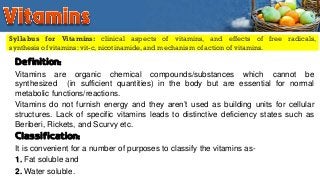
There are three major types of cardiovascular disease prevention: primary, secondary, and primordial. Although each of these elements has the same components, the starting point and effects are different. For prevention to be most effective, patients need to be aware of their risk factors, and develop a personalized plan. Your goal is to lower your risk of developing cardiovascular problems and live an extended and healthy life. For tips on how you can prevent heart disease, read on. This article will discuss the various types of cardiovascular disease and their treatment.
First, keep your heart healthy. A heart-friendly diet is one rich in fiber, low sodium, and rich with vitamins and minerals. The next step is to eliminate processed food, including white bread and processed snacks. These foods can be harmful to the heart if they are high in fiber. Avoid fast food and packaged snacks. Last but not least, do not reach for the salt shaker. Over-salinization can lead to heart disease.

Regular exercise is important in addition to eating healthy food. Experts recommend 150 minutes moderate exercise per week. That's about 20 minutes per day. A regular exercise program can also lower blood pressure, prevent heart disease, and help you stay healthy. Heart disease prevention can be achieved by practicing mindfulness and managing stress. It's much easier than it seems, and not as difficult, to change your lifestyle.
A healthy diet will reduce your risk of developing heart disease and help you to avoid heart attacks. A diet rich in fruits and vegetables is a proven way to lower your chances of developing the disease. A diet high in beans and low-fat proteins may also reduce your chances of developing the disease. The omega-3 fatty oils found in certain fish may help to lower your risk of developing heart disease. These methods can be incorporated into your daily life if you have the time.
Smoking is a leading risk factor for heart disease. To reduce your risk of developing coronary heart disease, quit smoking. Smoking should be stopped. The less cigarettes you smoke, the better for your heart. In addition, avoiding secondhand smoke will also reduce your risk of coronary artery disease. Stop smoking if possible. This will decrease your risk for heart disease.

Prevention of heart disease is something that should be done throughout your life. While it is difficult to detect, the disease can lead to an increased risk of heart failure and other serious symptoms. It is important that you take steps to decrease your risk of developing heart disease. By adopting healthy habits, you'll be able to reduce the risk of developing the disease. This way, you'll live a long and healthy life. The more you do, the healthier you'll be.
FAQ
What's a good workout routine for daily?
To stay fit, you need to exercise regularly. It doesn't matter what type of fitness activity you choose as long as you do it regularly. The key thing is consistency. For you to get results, you have to stick with it for a longer period of time.
Begin by walking for a few minutes each day. Gradually increase your exercise time until you are able to spend 30 minutes per day. You could do this by running, swimming, weight training or yoga.
It's important that you get your exercise done every day. Don't skip any sessions unless you have a valid reason for not attending.
When exercising outside, make sure you have the right clothing and shoes. It is important to take into account the weather conditions, and how they may affect your ability to exercise safely.
When exercising, ensure you drink lots of water. It is best to avoid alcohol while you're exercising. Avoid caffeine-rich drinks like coffee, tea, and coca. These drinks may give you energy but also dehydrate your body.
At first, it's normal to feel tired after you finish your exercise routine. Keep going with your workouts and you'll soon feel more energized.
Which is the best workout for men?
It all depends on your goals. Cardio exercises are great for anyone looking to lose weight.
For those who want to gain muscle mass, strength training will be a better option, as it increases your lean body mass.
Both types have been proven to have benefits for your overall well-being.
If you're looking for a quick way to get fit, I recommend HIIT/sprint interval training. This type helps you burn fat quickly, by increasing your metabolism. It also boosts your endurance to continue training even when you feel tired.
What does milk do?
Next time you buy milk think about what you could do with it. You may also benefit from consuming less coffee.
The benefits of milk have been demonstrated to be both beneficial to children and adults. Milk provides children with nutrients such as vitamin D, calcium, potassium, phosphorous, and magnesium.
It is also good for digestion and bone strength. Milk products can help adults have better immunity systems and less illness.
The lactose in milk is also high, so people with digestive problems can enjoy the benefits of milk without experiencing stomach discomfort.
Try drinking more milk instead of soda or juice. Drinking milk with more calcium and vitamin A can help to strengthen your teeth.
You can make yogurt with plain low-fat milk if you don't love the taste of milk. Yogurt, which is lower in calories but higher in protein, is a great option to milk.
Yogurt also includes probiotics. These help in digestion and improve immunity.
A glass of warm milk is a great way to get a good night's sleep if you're having trouble getting to sleep. Warm milk relaxes muscles, increases serotonin levels and helps you get a good night of sleep.
Statistics
- According to the American Heart Association, blood pressure should be checked at least once every two years, beginning at age 20. (my.clevelandclinic.org)
- Are You One of the 20% of Guys (mh.co.za)
- 10 pounds in a month is likely during a lean bulking phase, especially for beginners. (muscleandstrength.com)
- Get free shipping and 25% off today. (healthline.com)
- The PRS enabled risk stratification for overall prostate cancer and lethal disease with a four-fold difference between men in the highest and lowest quartiles (HR, 4.32; 95% confidence interval [CI], 3.16-5.89). (pubmed.ncbi.nlm.nih.gov)
External Links
How To
How can I exercise to burn fat?
Exercise burns calories by increasing metabolism and oxygen consumption.
If you exercise with moderate intensity, you can safely lose weight.
To burn fat while exercising, follow these tips:
-
Cardio exercises include walking, running, swimming, cycling, running and jogging.
-
For 30 minutes, do it three times a week.
-
You can lose weight by adding strength training to the routine.
-
Avoid intense workouts. It's possible to build muscle, but not lose it.
-
During exercise, drink plenty of water. Water helps flush out toxins and keep your body properly hydrated.
-
Choose low-fat protein shakes after working out. Protein shakes boost energy and repair muscle tissue.
-
So you don’t feel hungry, eat smaller meals throughout your day.
-
Don't skip breakfast! Skipping breakfast can cause you to feel tired and sluggish.
-
Take care to your mental well-being. Stressful situations can slow metabolism.
-
Keep a positive attitude. Studies show that people who believe they're overweight gain more weight than those who think they look pleasing.
-
Get enough sleep. Insufficient sleep can make it more difficult to lose weight.
-
Be active. Move around at least once an hour.
-
Maintain a healthy diet. Eat right to feel satisfied and full for longer.
-
Find ways to relax. A tense mind doesn't allow your body to release stress hormones that break down muscle tissue.
A balanced diet includes all essential nutrients needed for growth and development.
You should eat six small meals per day rather than three large ones. This allows your body to properly digest what you have eaten.
You need about 500 milligrams of calcium daily to maintain strong bones. Calcium is found in dairy products like yogurt, fortified milk beverages, orange juices, cereals and bread.
Calcium comes from leafy green vegetables, beans, tofu, nuts, seeds, and cheese.
Vitamin D is required by the body to absorb calcium. It's found in fatty fish, egg yolk, and some fortified foods.
Vitamin E is crucial for skin health. Vitamin E is found in vegetable oils and wheat germ oil, as well as peanuts, almonds and sunflower seeds.
Zinc is essential for healthy immunity and wound healing. Zinc is found in seafood, oysters legumes meats, whole grains, whole grains and meats.
Zinc deficiency could cause fatigue, nausea, vomiting, and depression.
Too much sugar leads to insulin resistance. This results in higher blood glucose levels. Insulin resistance leads directly to weight gain.
High levels of free radicals can lead to insulin resistance. Free radicals are molecules with unpaired electrons that damage cell membranes and other parts of the body.
The main sources of free radicals are food additives.
Free radical damage can lead to cancer, heart disease, diabetes, arthritis, asthma, and aging.
Eating a well-balanced diet with antioxidants is the best way to prevent free radical damage. Antioxidants protect against oxidative damage.
Vitamin C, beta carotene (found within citrus fruits, carrots, sweet potatoes and spinach), Vitamin E (found inside nuts, olive oils, avocados and eggs), and Vitamin C (found among mangoes.
Other antioxidant nutrients include selenium, copper, manganese, and zinc.
Selenium protects cells against oxidative damage from free radicals. Selenium may be found in Brazil nuts as well tuna, liver and kidneys. It can also be found on shrimp, cod, turkey, beef lamb, pork, chicken, and other foods.
Copper protects eyes, brain, lungs and red cells. Copper is also found in poultry, meat, and organs.
Manganese plays an important role in bone structure. Manganese may be found in brown rice or spinach, bananas and prunes as well raisins, oatmeal and lentils.
Zinc is necessary for average growth, reproduction, and wound healing. Zn is present in lean cuts of meat and white fish, as well as eggs.